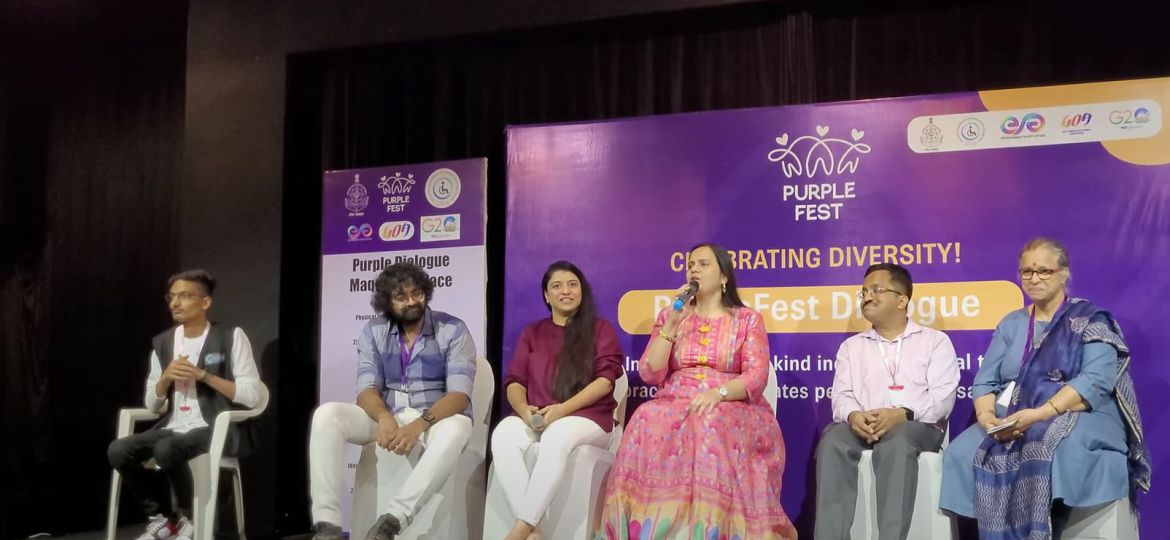
These videos are from the panel ‘Purple Dialogue on Gender, Sexuality and Disability’ at Purple Fest 2023, India’s largest and first-ever festival celebrating disability and diversity. Nidhi Goyal, founder and executive director of Rising Flame, is a champion of disability rights and gender justice, an ambassador of the Purple Fest 2023, and a woman with a disability herself. In these videos, she emphasises the importance of having conversations about gender and sexuality in disability spaces. She addresses how disability and gender come together and create further invisibilisation and stigma in an individual’s life. “Not a woman enough”, “Not a human enough” are often words that are used for women and persons with disabilities, and Nidhi shares the debilitating impact that this has on autonomy, choice and consent. Disability and gender also come together and impact our understanding and experiences around sexuality. Nidhi draws attention to the lack of accessibility in comprehensive sexuality education, be it from how we talk about bodies with blind students – often through images – to the lack of sign language material on sexuality.
The videos also explore the links between the invisibilisation of the sexuality of people with disabilities and how this results in a lacuna in understanding bodily autonomy and learning to identify experiences of violations or experiences of abuse and violence.
Nidhi traces the prevalent reluctance in society, from educators to families, to talk about the sexuality of people with disabilities. Young disabled people are made to feel like they need to either hide/stop themselves from expressing their desires and needs, or face adverse reactions when they do so. These videos also unpack the stigma and stereotypes around disability and their impact on how we understand the sexuality, sexual experiences, and bodily autonomy of disabled people, especially women with disabilities.
Through tying these threads together, Nidhi emphasises the need for us to create spaces where disabled people can understand and learn about their bodies, exercise their bodily autonomy, and build relationships with themselves and others.